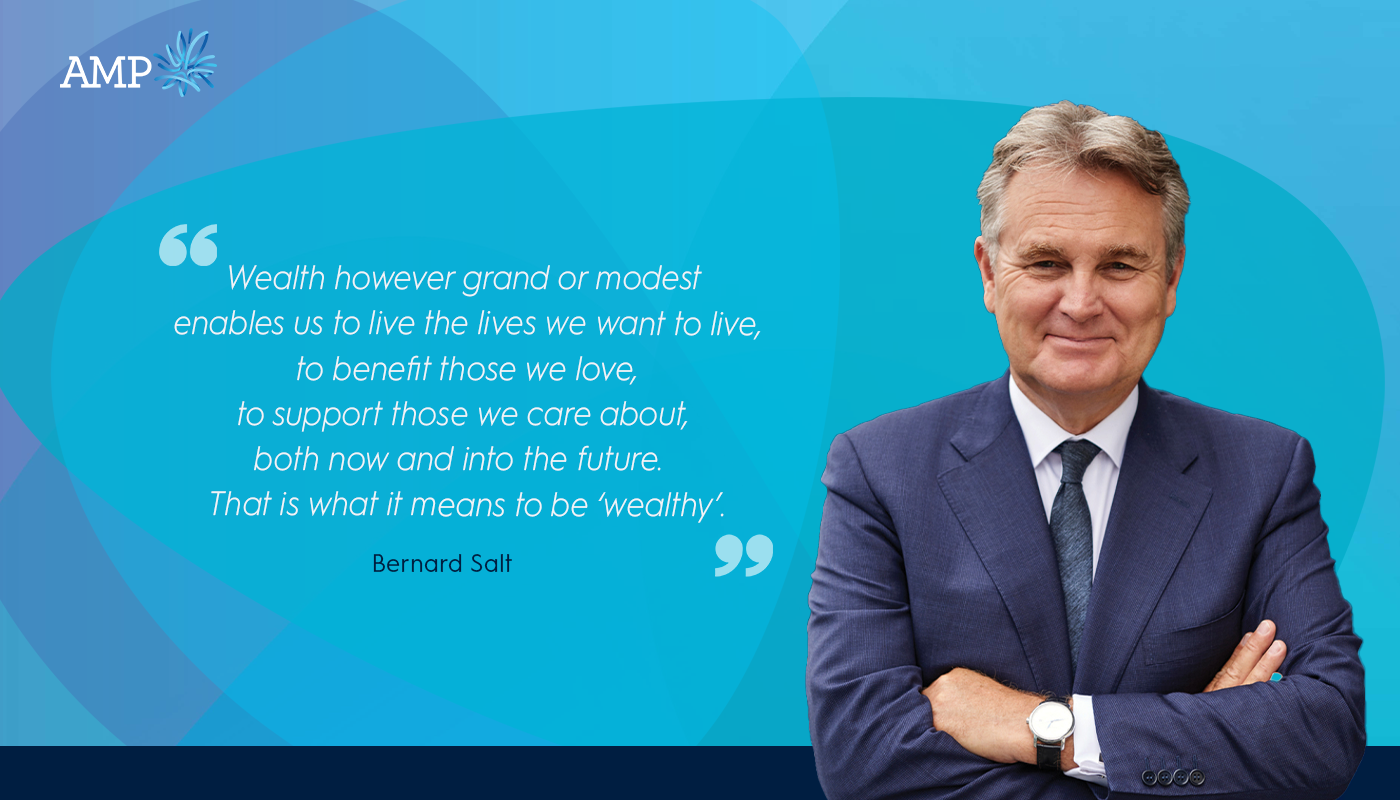New research shows attitudes to wealth no longer singularly defined by the ‘great Australian dream’ of home ownership
A new report by AMP and leading demographer Bernard Salt shows that more Australians now define wealthy as having the financial freedom to pursue passions and support those we care about, in a shift from the singular pursuit of home ownership sought by previous generations.
New research, which for the first time examines home ownership census data back to 1911, shows that ownership rates in Australia peaked at 73 per cent in 1966, with a steady decline to around 63 per cent today.
The report finds that while homes are still clearly the key wealth asset for many Australians, more people now view ‘wealthy’ as having the financial freedom to live the lifestyle they want and may seek to achieve this through more liquid forms of wealth, including savings, equities and other managed investments.
The report draws on a range of demographic data and analyses key societal developments over the past 50+ years, to explore what it means to be wealthy in Australia today, and how and why our attitudes have changed.
Marrying and having children later, higher rates of divorce, and increased life expectancy, have culminated in more ‘alone time’ for many Australians, leading to a more individualised view of how we think about wealth.
Increasing life expectancy, greater workforce participation by women, the superannuation guarantee, the rise of apartment living, globalisation delivering greater prosperity and, more recently, the COVID-19 pandemic, have also contributed to our changing views of what it means to be wealthy.
Bernard Salt, commented:
“Our singular focus on home ownership in the middle of the 20th century delivered a sense of security to returning diggers whose childhood was spent navigating the travails of the Great Depression. Getting married, having kids, buying a house, holding a steady job were values that shaped the times.
“Whereas current day Australians have a range of objectives which includes home ownership, it also includes the pursuit of options like how and where we work, in how and when we form relationships and in how we choose to live our lives. Many of these things have changed dramatically since the 1960s.
“What has not changed is the value of health, of personal relationships, of family, of the ideal of provisioning for children, of helping grandchildren. These things are eternal. They are human. This is the reason why we pursue security through wealth and why we have pursued these things in the past.
“Wealth however grand or modest enables us to live the lives we want to live, to benefit those we love, to support those we care about, both now and into the future. That is what it means to be ‘wealthy’.”
Alexis George, AMP’s Chief Executive Officer, commented:
“The report shines new light on our nation’s attitudes to wealth, what we value and how we manage our finances, which has shifted significantly over the past 50 years.
“No longer anchored just to home ownership, the concept of wealthy is now defined by a financial ability to pursue unique passions and goals, which often includes helping those close to us.
“Modern day wealth requires us to consider what our goals are and to put a financial plan in place. The earlier we do this, the more likely we are to achieve those goals.
“The challenge is that despite Australia having one of the world’s highest GDPs, a resilient economy and a strong education system, we know that financial literacy is poor, and financial advice remains out of reach for many.
“Improving financial literacy, offering greater access to financial advice, retirement and other investment solutions are key ways financial services organisations like AMP can help Australians engage more with their finances, so that they can achieve the wealthy they want.”
Click here for the full report: bernard-salt-report-what-wealthy-means-to-australians-in-2023.pdf (amp.com.au)


